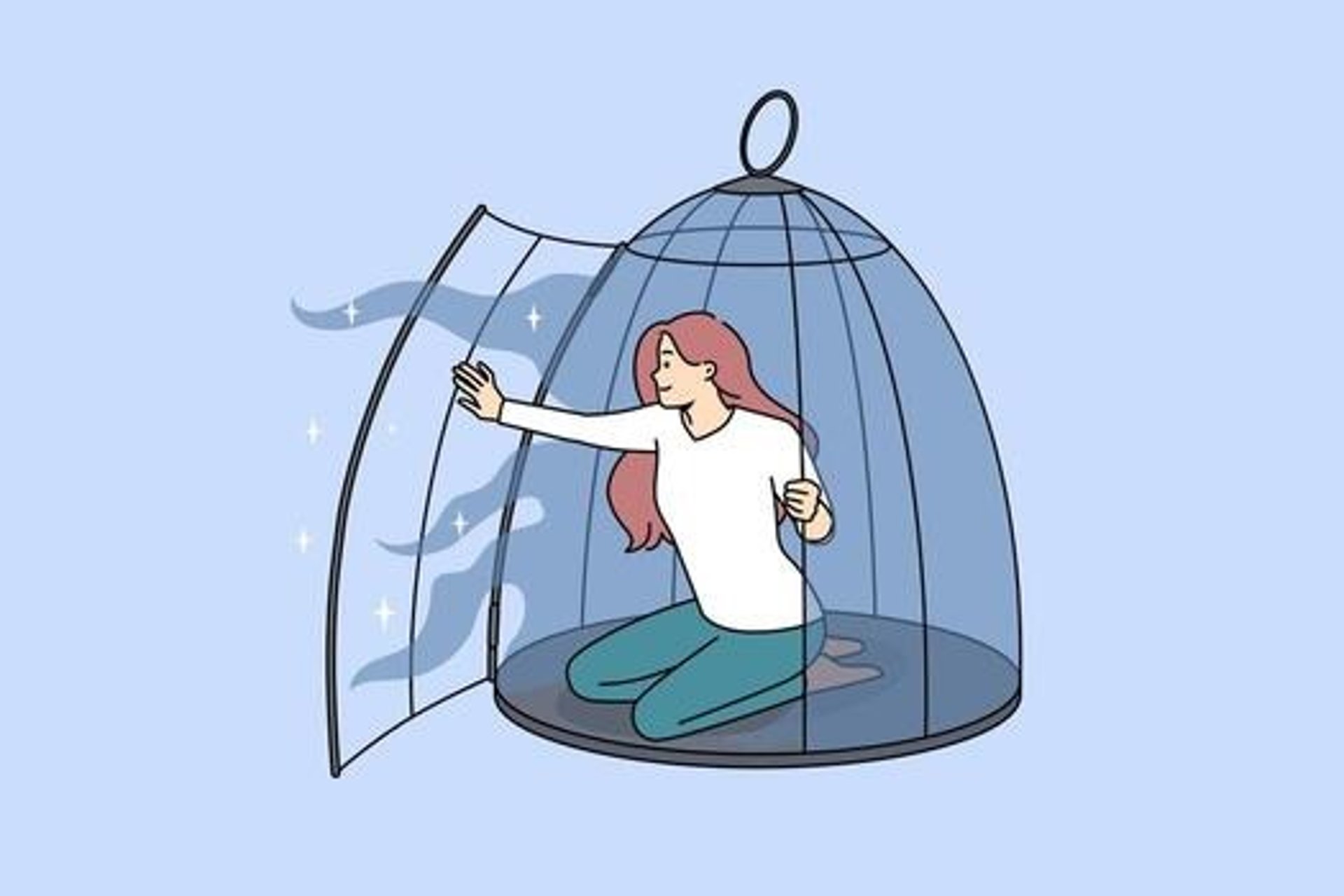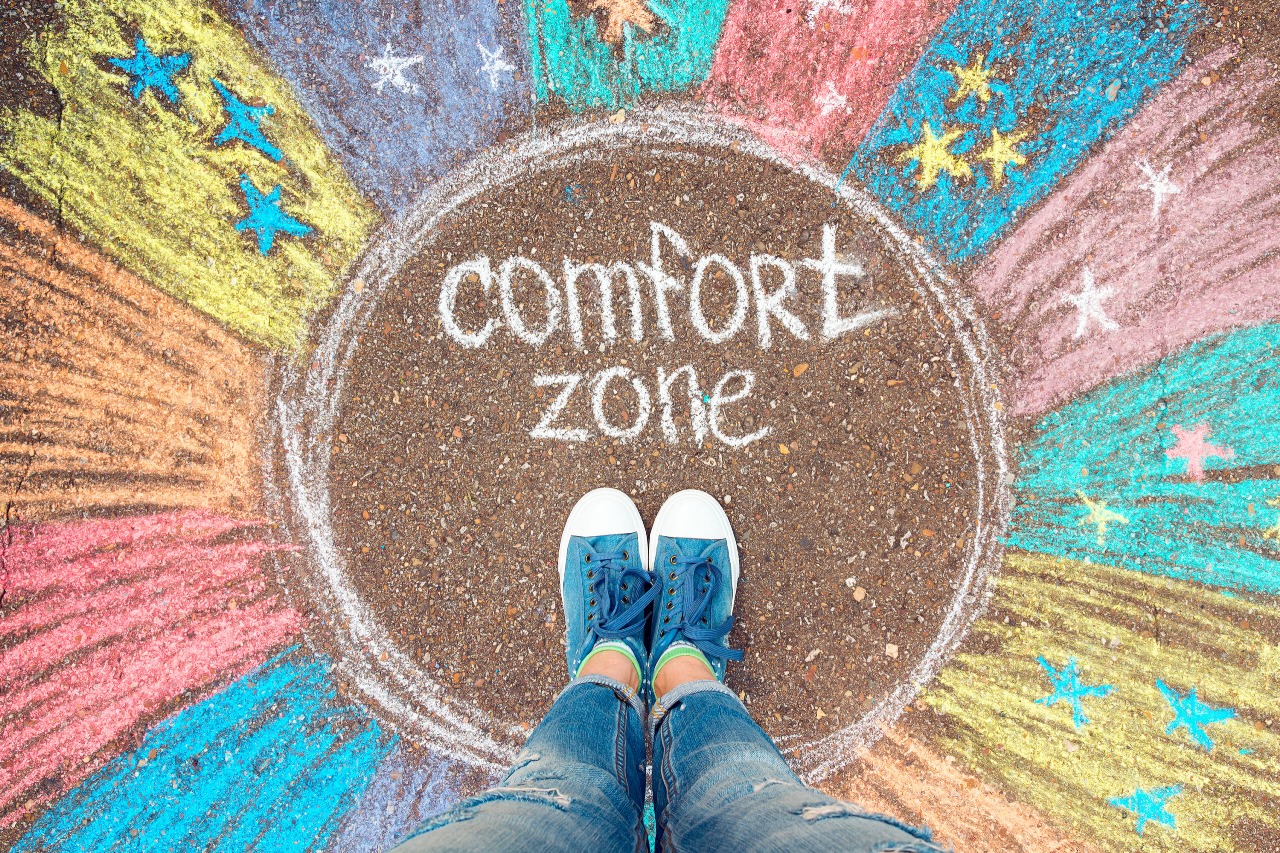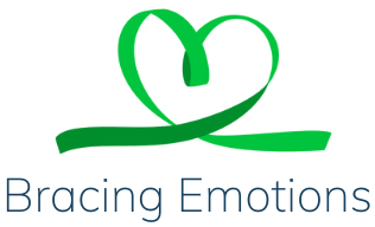
Navigating Comfort Zone by Understanding our Real Self
Ever felt caught between the person you are today and the future you dream of? Alice’s journey shows how recognizing your comfort zone and slowly stepping beyond it, can open doors you never knew existed.
Rakshita Magodra
11/25/20253 min read


Navigating Comfort Zone by Understanding our Real Self
Alice is a 20 year old girl who is pursuing her bachelors in sociology and aspires to become an IAS officer. As of now she reads news, current affairs, editorials but she does not maintain consistency with her routine. She knows that reading these resources only once in a while won’t help the crack UPSC Civil services exams; but she will have to read books, practice mock papers and take extra efforts. Even though she knows what to do, she keeps on going out with her friends instead of investing her time in studies. She is either engrossed in screen time or gives invalid excuses because she does not want to sacrifice enjoying. She thinks all of this as sacrifice because she is not sure whether her hard work would pay off and she fears that she will miss out enjoying with her friends in college and she won’t get her college days back.
Well let’s help Alice by solving her problem : A clear breakdown of her problem.
· Alice’s problem can be best explained by the Theory of Real Self and Ideal Self given by Carl Rogers.
· Real Self is the self which we are now or our present self. In the above case of Alice, currently she aspires to become an IAS officer but procrastinates to follow a routine.
· Ideal Self is the self which we want to become. In case of Alice, she wants to become an IAS Officer.
· Where is the problem ? There is a significant gap between her real self and ideal self. This creates distress, anxiety because she knows what to do but she is unable to do it as she is not ready to get out of her comfort zone.
· In Psychology ‘comfort zone’ is a psychological state where an individual feels at ease and in control because they are in a familiar, low-anxiety environment.(Wooll, 2022)
· Comfort zones do not allow individuals to see the opportunities which the world is holding for them. It is like a small circle where individuals think that the world is not beyond this small circle.
· In case of Alice, her comfort zone is not managing time for her academic life and her social life. Moreover her fear of missing out.
· Though comfort zone brings safety, it also reinforces stagnation in an individual's life.
· Comfort zones do not allow individuals to take risks, try new tasks/routines.
· Moreover, it acts as a barricade between the real self and ideal self. If we do not understand who we truly are then we will always remain in the small circle of our comfort zone.
Let us fix Alice’s problem :
· First Alice must understand her strengths, potential, skills and weaknesses. As of now she has already taken baby steps by reading study material but she is unable to maintain consistency.
· For that she must dedicate at least 45 minutes for reading by avoiding screen time and going out with her friends .
· One must never try to come out of their comfort zone hastily. We must take time and understand ourselves. Even though comfort zone is a small circle, breaking that small circle and coming out of it is surely a big task!
· Once Alice develops this habit then she can gradually add more tasks to her to-do-list and attain her ideal self.
· No matter what kind of comfort zone it is, it creates obstacles between real and ideal self.
Take this instance : There used to be a frog who used to live in a well and it used to think that this is the only world and there is no other world apart from this. One day it looks up at the sky and sees an eagle flying high in the sky. The frog wondered how this was possible. All I know is this well. It then decides to take a big jump and somehow manages to get out of the well. It comes out and sees the beautiful world around. It realizes that all this time it was only living in a small circle .
That’s why don’t narrow your horizon by restricting yourself to a small circle, broaden your horizon allowing yourself to fly high in the sky and meet new opportunities by navigating through your comfort!
Note : This piece is inspired by the theory of Real Self and Ideal Self given by Carl Rogers and the interpretation of the comfort zone is solely the writer's opinion.
References:
Rogers, C. R. (1961). On becoming a person: A therapist’s view of psychotherapy. Boston: Houghton Mifflin.
Connect
Join our community for mental health discussions.
Support
© 2024. All rights reserved.

